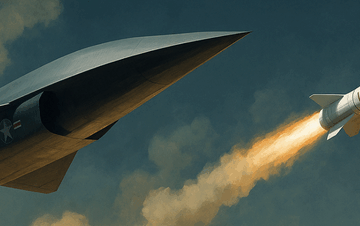The anniversary of the atomic bombing of Hiroshima is frequently marked by historians and commentators for its historic significance. Less frequent in discussion is the commemoration of the bombing of Nagasaki three days later. But it could be argued that the latter event was equally or more significant than the former.
Doubtless the significance of Hiroshima speaks for itself. The bomb had previously been tested successfully in the New Mexico desert, but it had yet to be used under operational conditions. Scientists and military experts offered various predictions about whether the bomb would detonate as expected and what it might cause. The bombing of Hiroshima turned theory into practice. The United States created a new weapon of unprecedented and terrifying power.
On the other hand, even after the destruction of Hiroshima, the Japanese political and military leadership was not prepared to surrender. Anticipating an eventual American invasion of the Japanese home islands, the imperial government prepared their civilian population for protracted urban warfare and other means of diehard resistance to foreign occupation. Outside the home islands, large contingents of the imperial Japanese armed forces remained capable of fighting, absent a regime surrender.
Japanese leaders may have also doubted whether the United States was capable of repeating the destruction inflicted on Hiroshima. The US might have only one of these unprecedented weapons in its arsenal and, having used it, would need to defeat Japan’s military by an inevitable invasion, costly to Americans as well as to Japanese.
The bombing of Nagasaki changed this optimistic calculus to a more pessimistic one. Now it seemed possible that the US may have many of these weapons ready for immediate use. As we now know, the United States did not. But, if the war lasted well beyond August of 1945, the US could have manufactured and used additional atomic weapons against Japan. Facing this possibility, Emperor Hirohito made an unprecedented radio address calling on his population and armed forces to surrender.
The emperor’s address caused most, but not all, Japanese to accept the “unthinkable” surrender. A number of military officers committed ritual suicide, and a small coterie of fanatics tried to overthrow the government and continue the war, notwithstanding the wishes of the emperor.
But after the bombing of Nagasaki, most accepted that there was no alternative to surrender. The US wisely agreed to spare the life of the emperor and to avoid treating him as a war criminal, despite calls for his incarceration and execution on the part of many Americans. It was judged correctly that Hirohito would be a necessary legitimizing symbol useful in establishing a postwar democratic regime under the governance of Douglas MacArthur.
The bombing of Nagasaki is significant in other ways as well. It shows that deterrence is based not only on the experience of pain and destruction already inflicted, but also on the expectation of more pain to come, if the demands of an adversary are not met. The future unknown can be more terrifying than the known past, however terrible the past was.
By example, British Prime Minister Winston Churchill was able to rally parliament and the British public in 1940 to resist Hitler at all costs, regardless of the pessimism of some in the political establishment, many of whom preferred to make a deal with Hitler. It was not only the immediate peril of British forces deployed in France that mattered, but also the unknown fate of Britain under German rule that caused leaders and most of the British public to stand fast despite seemingly impossible odds.
The bombing of Nagasaki is significant in another way. Contrary to the predictions of many experts, it represented the last use of the atomic bomb fired in anger. Nuclear deterrence proved to be more durable and less brittle than expected, even during the worst moments of the Cold War. The Cuban missile crisis was a close call, but Khrushchev’s reckless gamble in America’s backyard was discovered by US intelligence and exposed in time for crisis management to succeed.
Can we assume that deterrence will hold firm in a new world order of rising competition and conflict among three nuclear-armed great powers; one rogue nuclear weapons state; a potential rogue nuclear weapons state; and possible additional nuclear proliferation in the Middle East, Asia, or elsewhere? This question has special significance for Japan and takes us back to its singular experiences of atomic bombing. Their history has understandably created, in the minds of the Japanese people, an allergic reaction to the development of an indigenous nuclear arsenal. But, as Japan faces a more assertive China, an erratic North Korea, and an aggressive Russia, reality may overcome such resistance.
Thus far, Japan has depended upon the nuclear umbrella of the United States to deter adversaries against nuclear coercion or first use. As the military configuration of Asia changes, leaders in Japan may begin to entertain the notion of a nuclear deterrent: modest in size, but sufficient to create the expectation of unprecedented, and unacceptable, damage to any prospective attacker. Should that day arrive, Japan will come full circle from the attack on Nagasaki.
Steve Cimbala, PhD, is a Senior Fellow at the National Institute for Deterrence Studies. Views expressed are his own.
About the Author

Stephen Cimbala
Dr. Stephen Cimbala is Distinguished Professor of Political Science at Penn State university, Brandywine. He is currently a senior fellow with the National Institute for Deterrence Studies.




